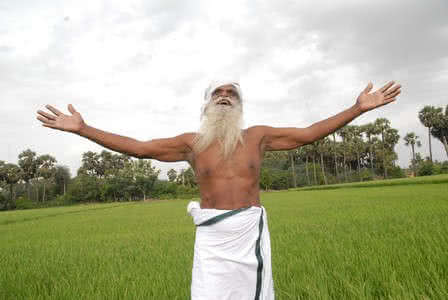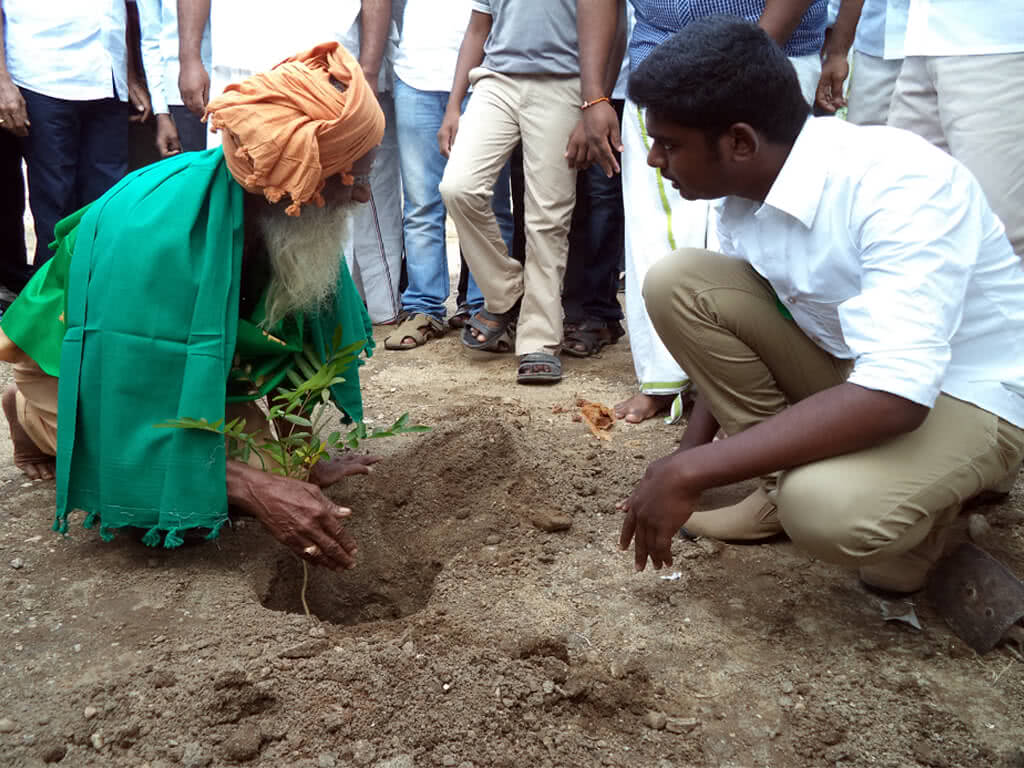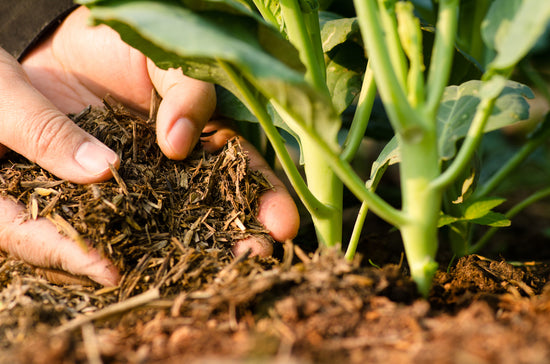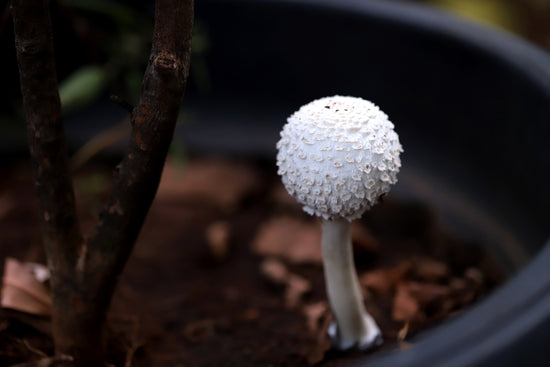Well, this isn’t anything close to Lagaan! Read to know precisely what it was.
Want to attend coaching classes for competitive exams, but can’t afford it? Worry not! A Gunasekaran allows you to pay them with farm produce or tutoring kids. Yes. It is about this man - A Gunasekaran.
The article by Damini Goel unfolds like this -
As we drive amidst the green farmlands of Vellianalore village in Cheyyar Taluk, we witness the unparalleled richness of nature - lush trees, varied flora and fauna, and everything bathed in green. As we drive past the Cheyyar Bus Depot to where Sabarmathi Gurukulam is located, I observe two large hoardings proudly displaying a picture of G Nammalvar, a Tamil environment activist and organic farming expert. The Gurukulam is built with mud structures and thatched roofs and is spread across one acre of land. But with the number of schools in rural areas on the rise, what makes this one so special?
Sabarmathi follows the ancient gurukul system of teaching. One can choose to pay with either money or with anything they possess, in exchange for education - much like the barter system. The gurukulam offers coaching for various competitive exams - UPSC, Banking, TNPSC, and NEET. Started in April 2017 by A Gunasekaran, with an aim to ensure that education does not become a burden on the poor, Sabarmathi doesn't teach students for free, neither does it follow a set norm for fee payment. “There is always a high demand for government jobs and due to increased unemployment, there is a massive competition for these jobs. This demand has made preparing for competitive exams very costly for aspirants from poorer families, it has become a burden to afford coaching as they have to pay somewhere around Rs.1-1.25 lacs. That’s when the idea of Sabarmathi Gurukulam developed, ” says A Gunasekaran, who is also a guest faculty at Shankar IAS Academy, Anna Nagar.

A social worker at heart:
It all started back in 2002 when Gunasekaran was studying at the government engineering college in Erode. He and his friends had raised funds to support an old-age home and they did so by collecting Rs.10 from each student in the hostel, raising a total of Rs.15000. They also reached out to the alumni, requesting them to donate. By the end, they were able to raise Rs.50000, which was beyond their expectations. With the money they raised, the old age homes founder was able to buy some land on the outskirts of Erode.In 2003, Gunasekaran and the team formed a Students Welfare Foundation with tha tagline ‘For the students, to the students and by the students’. After graduating, Gunasekaran and a group of about 100 alumni established the Smile Welfare Foundation in 2004, with an aim to help more students. The organization is now running 5 projects under the foundation.
The need for Sabarmathi:
Moved by the thought that there are no coaching center in villages, Gunasekaran wanted to start something in the remote areas where people can get access to education. Through Sabarmathi Gurukulam, Gunasekaran and his team of 3, help students in their subjects, conduct mock tests, and provide tips to score better. While the students can choose to pay according to their financial background (which they refer to as Gurudakshina - whatever they can afford) the hostel inmates are required to pay Rs.2000/month towards accomodation and food expenses. However, this amount can be paid in one of 3 ways -- In cash
- By doing organic farming for 2 hours daily
- Or by teaching students in nearby villages
The overall strength of students in Sabramathi is 80, out of which 50 are hostel inmates and 30, day scholars. The money payment system is the least preferred option among the students. “Students can visit nearby villages and conduct tuitions for government school students. As the school curriculum forms a majority of the competitive exams syllabus, this will not only help these children, but also the Gurukulam students. In return, the Smile Foundation covers their hostel accomodation, which accounts for Rs.1500 / month. The motive here is to educate as many rural children as possible and improve the quality of education in government schools,” he says, adding “Sabarmathi Gurukulam addresses brain drain, agricultural decline and unemployment.”

But why organic farming:
Gunasekaran feels that merely coaching students in exams will not make them employable, as the success rate in these exams is quite less due to the background of the students, who have studies in government schools and colleges. It was then that he got the idea of introducing students to organic farming and also make them employable. The revenue generated by their farming activities goes towards their food and accommodation expenses. Currently, 25 students are availing the option of doing organic farming to pay for their expenses. “Students find farming more interesting and relish it. This also promises an alternate career for those who do not land a job. The basic intention is to make them employable,” he says.Apart from this, students are also involved in activities like making organic soaps and leaf-plates, and extracting groundnut oil, which is later sold in the cities. The revenue generated from these is also used in the Gurukulam. Currently, Gunasekaran is dependant on his friends and family to run the Gurukulam, but within the next 1 year, he hopes to make it self-sustainable. And what’s next on the cards? Gunasekaran plans to start a Sabarmathi Gurukulam in every district covering nearly 50 villages and reachout to as many students as possible.
Read about what is natural farming? How is it different from organic farming?
Highlights of Sabarmathi Gurukulam:
- At Sabarmathi Gurukulam, students are not only imparted with education, but also taught the values and importance of their Gurus.
- The students work in the farms every morning for 2 hours to pay for their food and accommodation expenses.
- As an avid follower of G Nammalvar, Gunasekaran was always interested in organic farming and wanted to take it forward through his students.
- On March, Sabarmathi Gurukulam conducted a silent rally in Bengaluru to extend their support to condemn the mass killing of people in Syria, especially children.
- Gunasekaran spent Rs.1.25 lac to build the library where students can access study material for various competitive exams.
- In their free time, the Gurukulam students play the Parai - one of the oldest drums in Tamil culture.
- Smile Welfare Foundation is a non-profit organization that works for the upliftment of underprivileged children from all backgrounds.
- 15 L the cost of building the Gurukulam.
- The organic farming area is spread across 5 acres.

I couldn’t conclude if I should call him a superhero who works for the betterment of deprived society or call him a Messiah of the students who wish to excel in life.
Read more about Sabarmathi Gurukulam here.
Reference: The New Indian Express, Monday, March 19, 2018










